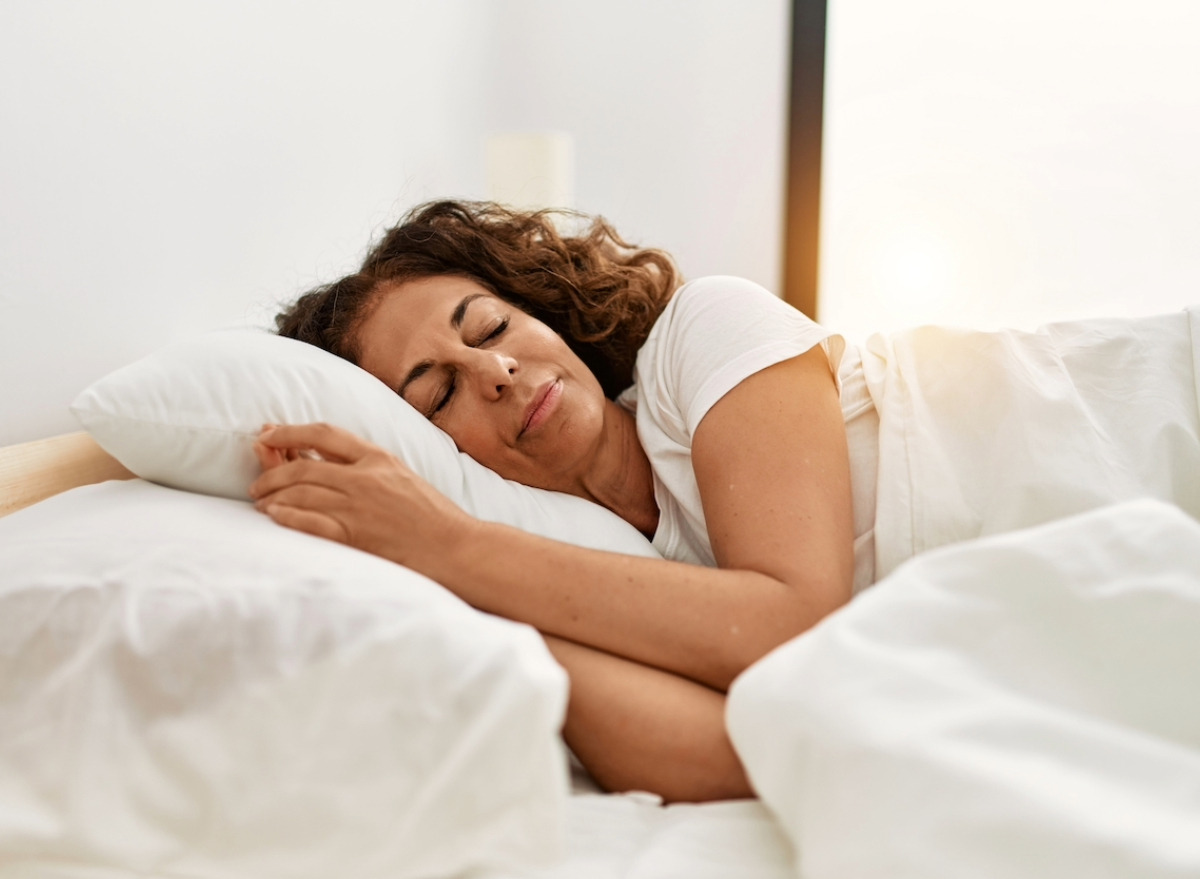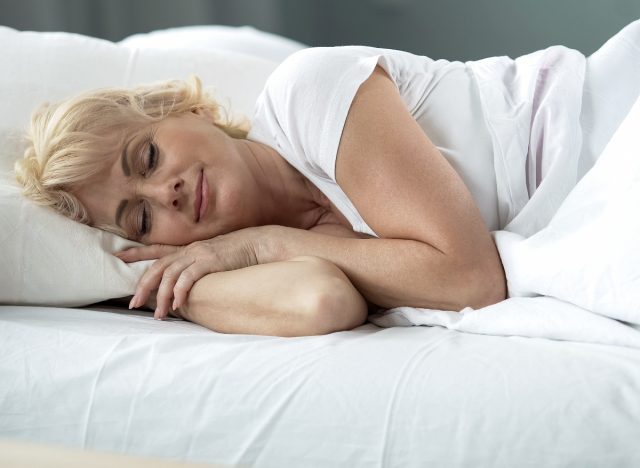The Worst Sleeping Habit That’s Aging You Faster

Getting enough restful sleep is a crucial part of your overall health and wellness, yet prioritizing it can so easily get put on the back burner. Between not investing in the right bedding, nighttime lighting, shades, and air purifier, your sleep habits can go downhill fast. In addition, working late hours, drinking too much water close to bedtime, having a nightcap, scrolling through social media, or watching TV in bed can wreak havoc on your precious and much-needed Z’s. The time is now to give your nighttime routine an update and make restful Z’s a top priority. That’s why we spoke with Dorsey Standish, MS, a mechanical engineer, neuroscientist, wellness expert, and CEO of Mastermind Meditate, who shares the worst sleeping habit that’s aging you faster.
While you’re making all of these necessary improvements, make sure to address this bad habit as well! Read on to learn more, and when you’re finished, be sure to check out People Swear by the ‘Scandinavian Sleep Method’ for Better Sleep: ‘It’s Absolutely Amazing!’
This is the worst sleeping habit that’s aging you faster.

“The worst sleeping habit that’s aging you faster is not sleeping enough! The most important thing for your well-being and vitality is that you DO get sleep,” Standish stresses. “One UCLA study found that even one night of partial sleep deprivation in older adults activates genes related to biological aging.”
One out of three U.S. adults don’t get enough sufficient rest or sleep on a daily basis, the Centers for Disease Control and Prevention (CDC) reports. In addition, almost 40% of adults report nodding off during daytime hours—without planning on it—a minimum of once a month.
Not getting sufficient sleep is correlated to various health concerns and diseases, such as heart disease, type 2 diabetes, depression, and obesity, the National Heart, Lung, and Blood Institute explains. Heart disease has been the #1 cause of mortality in this country ever since 1950.
The benefits of getting “beauty sleep”:

“There’s a reason they call it ‘beauty sleep!’ Sleep allows your body and brain to repair and rejuvenate at the cellular level,” Standish tells us. “During sleep, your cells produce more protein molecules which form the building blocks for cell repair. In addition, during sleep, your cerebrospinal fluid acts to drain the brain’s waste products and toxins that accumulate during waking hours (including the beta-amyloid protein, which contributes to Alzheimer’s disease).”
To make sure you’re getting a restful night of beauty sleep, Standish encourages you to “practice good sleep hygiene.” This means powering down or stowing away electronic devices 30 to 60 minutes before sleep and giving your nervous system some wind-down time with a good read. You can also perform gentle stretches or a soothing non-sleep deep rest (NSDR) mindfulness practice.
“Eventually, your bedtime routine will become part of your signal to your body and mind that it’s time to relax and sleep deeply,” Standish says.